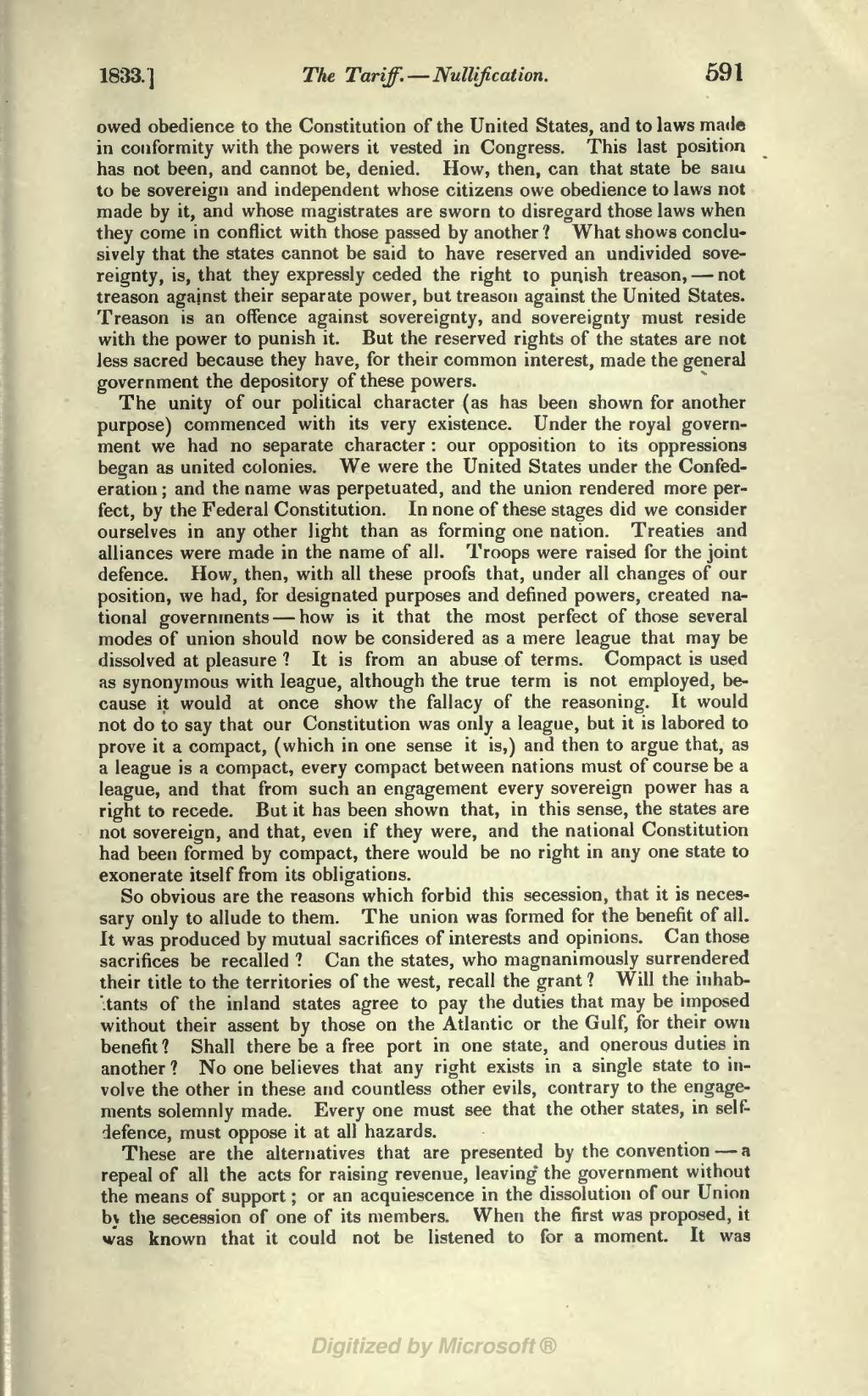owed obedience to the Constitution of the United States, and to laws made in conformity with the powers vested in Congress. This last position has not been, and cannot be, denied. How, then, can that state be said to be sovereign and independent whose citizens owe obedience to laws not made by it, and whose magistrates are sworn to disregard those laws when they come in conflict with those passed by another? What shows conclusively that the states cannot be said to have reserved an undivided sovereignty, is, that they expressly ceded the right to punish treason,—not treason against their separate power, but treason against the United States. Treason is an offense against sovereignty, and sovereignty must reside with the power to punish it. But the reserved rights of the states are not less sacred because they have, for their common interest, made the general government the depository of these powers.
The unity of our political character (as has been shown for another purpose) commenced with its very existence. Under the royal government we had no separate character: our opposition to its oppression began as united colonies. We were the United States under the Confederation; and the name was perpetuated, and the Union rendered more perfect, by the Federal Constitution. In none of these stages did we consider ourselves in any other light than as forming one nation. Treaties and alliances were made in the name of all. Troops were raised for the joint defense. How, then, with all these proofs, that under all changes of our position, we had, for designated purposes and with defined powers, created national governments—how is it that the most perfect of these several modes of union should now be considered as a mere league that may be dissolved at pleasure? It is from an abuse of terms. Compact is used as synonymous with league, although the true term is not employed, because it would at once show the fallacy of the reasoning. It would not do to say that our Constitution was only a league, but it is labored to prove it a compact, (which, in one sense, it is,) and then to argue that, as a league is a compact, every compact between nations must of course be a league, and that from such an engagement every sovereign power has a right to recede. But it has been shown that, in this sense, the states are not sovereign, and that, even if they were, and the national Constitution had been formed by compact, there would be no right in any one state to exonerate itself from the obligation.
So obvious are the reasons which forbid this secession, that it is necessary only to allude to them. The Union was formed for the benefit of all. It was produced by mutual sacrifice of interest and opinions. Can those sacrifices be recalled? Can the states, who magnanimously surrendered their title to the territories of the West, recall the grant? Will the inhabitants of the inland states agree to pay the duties that may be imposed without their assent by those on the Atlantic or the Gulf, for their own benefit? Shall there be a free port in one state, and enormous duties in another? No one believes that any right exists in a single state to involve all the others in these and countless other evils, contrary to engagements solemnly made. Everyone must see that the other states, in self-defense, must oppose it at all hazards.
These are the alternatives that are presented by the convention—a repeal of all the acts for raising revenue, leaving the government without the means of support; or an acquiescence in the dissolution of our Union by the secession of one of its members. When the first was proposed, it was known that it could not be listened to for a moment. It was
